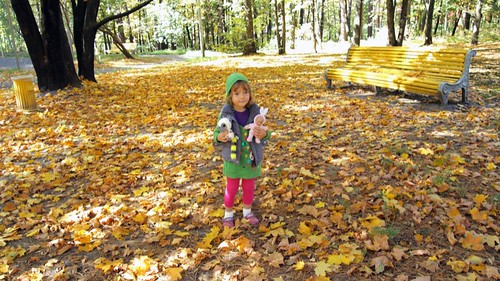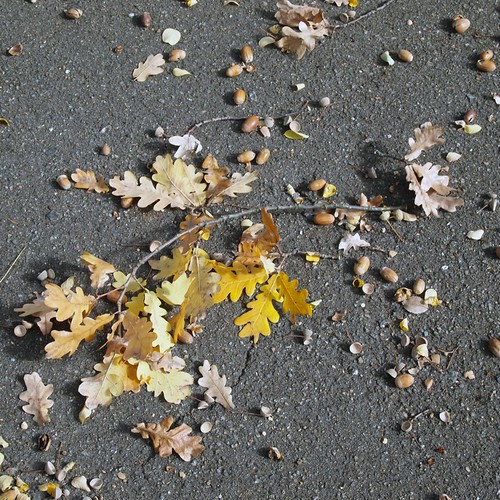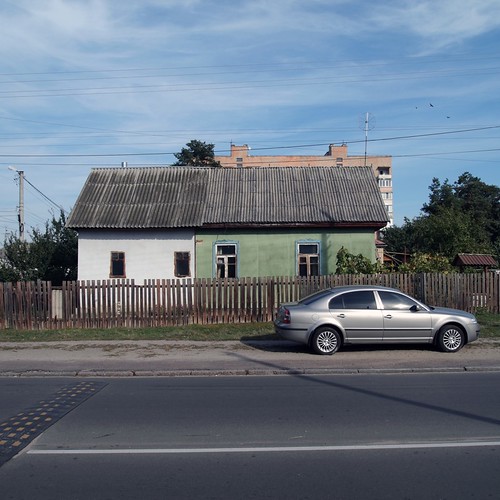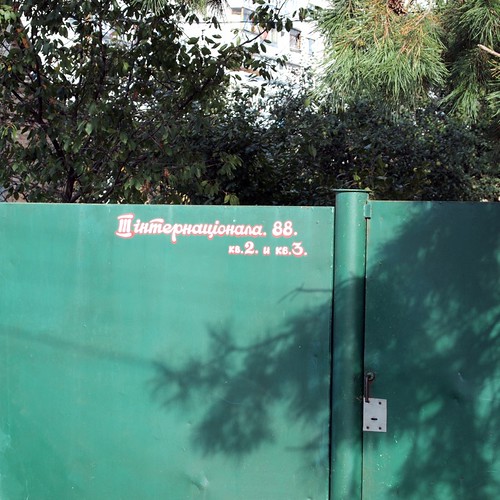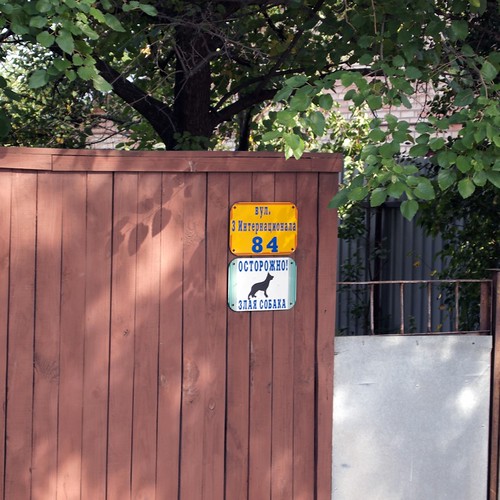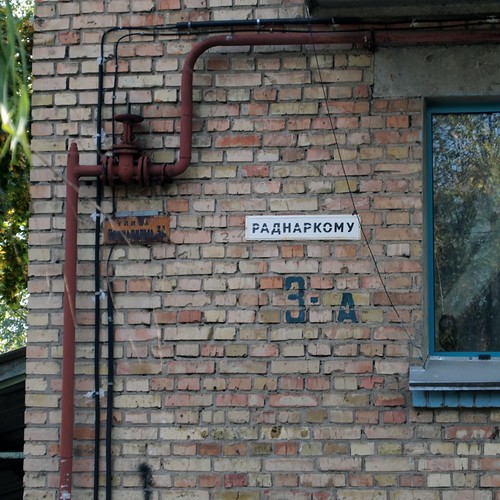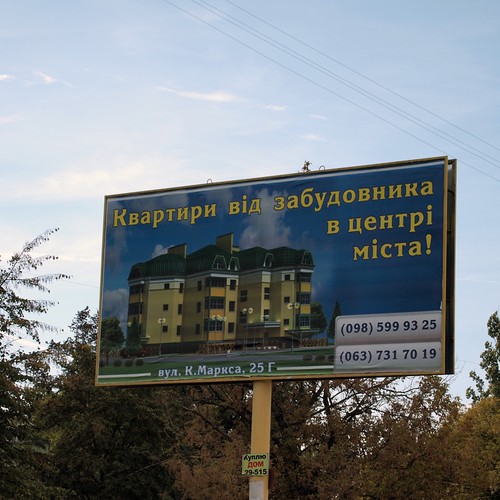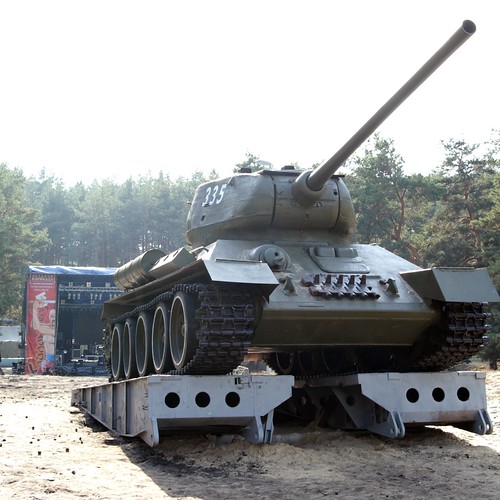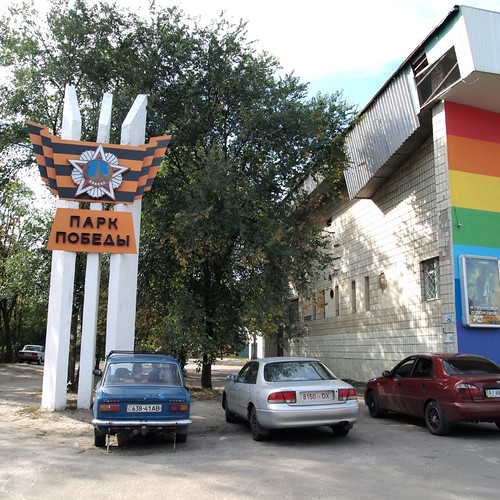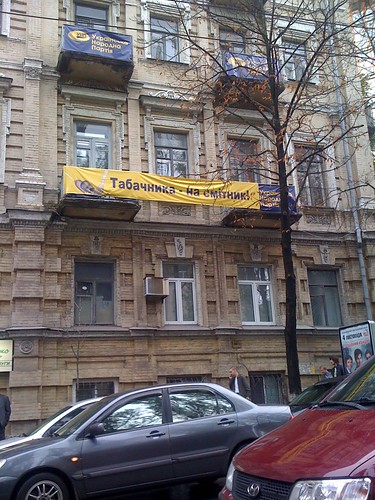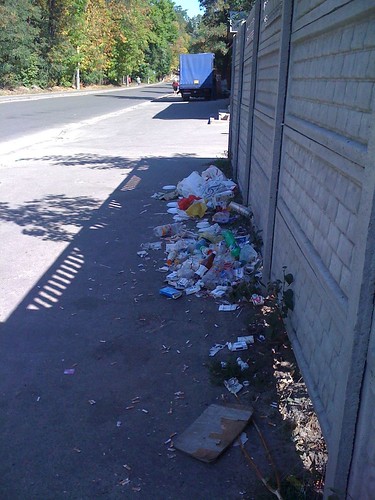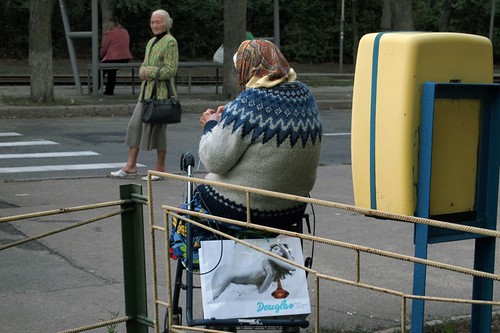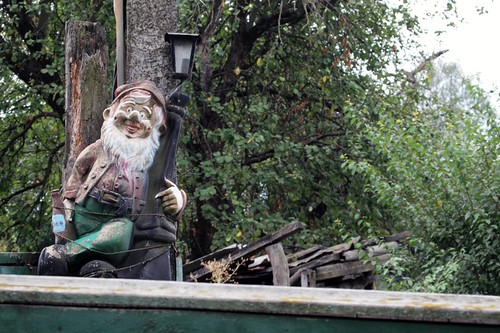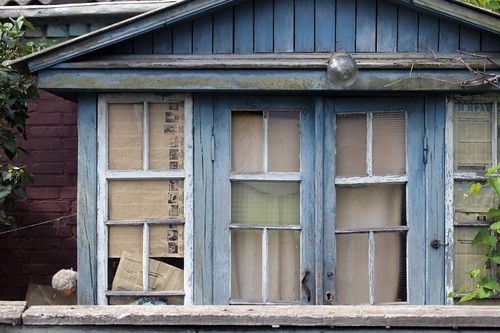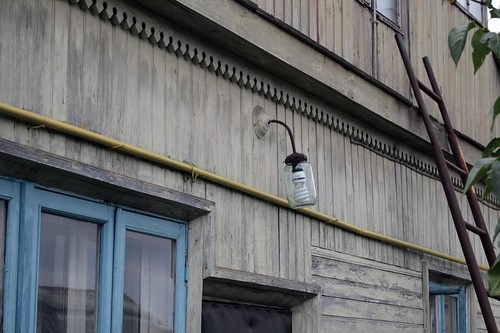My GV translation of a Beslan survivor's story...
Russia: Beslan School Siege Survivor's Account
Agunda Vataeva (LJ user
agunya) was a 13-year-old girl about to begin her ninth-grade studies on Sept. 1, 2004, the day when she, her mother and
more than 1,100 others were taken hostage at School #1 in the
North Ossetian town of
Beslan. She survived the three-day siege. Her mother, a teacher, didn't. Of the 334 hostages who lost their lives six years ago, 186 were children.
Agunda is a 19-year-old college student now. In the past three days, she has posted three installments of her recollections (RUS) of Sept. 1-3, 2004, on her
LiveJournal and
Radio Echo of Moscow blogs.
She writes this in the introduction to her
first post:
While at the hospital, right after I got a notebook [computer], I began writing down what I remembered of those three days that I spent as a hostage. Six years later, I'd like to publish the notes I was writing then, [when the memories were still fresh]. [...]
On the Echo of Moscow blog, this Sept. 1 entry has been viewed 7,554 times and has generated 55 comments so far.
Agunda begins her account with the description of a festive yet ordinary morning, warm and very sunny, her walk to school with her mother, the final preparations for the welcoming of the new school year, and her casual chat with friends - which was suddenly interrupted by shooting:
[...] I turned around and saw three boys running towards the exit, and behind them a man in fatigues and with a thick black beard. He was running after the boys and shooting in the air. I thought: "Someone is making a bad joke, must be a prank or perhaps yet another drill." These thoughts vanished as soon as the shooting started from all sides and they started pushing us towards the boiler house. We were all huddled together. Trampled flowers, shoes and bags were strewn on the asphalt. [...]
Agunda and a couple of her close friends found themselves trapped in the school gym, together with hundreds of other hostages:
[...] People were panicking, we were hysterical. To quiet us down, They got one man up and threatened to kill him if we didn't fall silent. We were trying, but the fear and the panic prevailed. A gunshot was heard. They killed him... this is when the silence set in, dead silence, literally. Only the children's crying and screaming interrupted it. [...]
Soon enough Agunda's mother was allowed to join her daughter:
[...] We immediately started asking her what would happen, whether they would let us go or not. [...] Mama was talking very calmly, saying that everything would be fine, that we would be rescued. But as I looked at her, I knew that even Mama didn't know how it would all end, she was just calming us down, as her students, as kids. Kids - we were nothing but the scared kids then. [...] In a situation like that, even the most mature ADULTS were turning into cranky kids. [...]
Some more details from Day 1 of the siege:
[...] A gunman walked by, then stopped abruptly, [...] looked at Madina [Agunda's friend] and got very angry. He threw some jacket to her with these words: "Cover your shame!" She had bare knees, and, frightened, she covered herself right away. I felt a little bit better after this. "At least, they aren't going to rape us," I thought.
[...]
Time went by very slowly. It was hot, terribly hot. We took off all the clothes we could take off without looking indecent. There was little space, we sat on a bench. [...]
[...]
[...] It was around 8 PM when it started raining [...]. We sat by the broken windows and were catching raindrops with our mouths - this is how thirsty we were. Mama kept covering me and the girls with her jacket, but I kept getting out to get some rain. I felt so good - I think it's the best memory from that hell. [...]
Closer to lunchtime, by the way, They tried setting up a TV in the gym (to entertain the hostages with newscasts, obviously), but [it didn't work]. They told us that, according to the TV reports, there were 354 hostages. We felt [...] outraged. [...]
[...]
Throughout the night, we took turns sleeping in couples for an hour. While Madina and I sat on the bench, Mama and Zarina slept on the floor. An hour passed, and we'd switch. [...]
In the
Sept. 2 entry (9,626 views, 92 comments
on the Echo of Moscow blog), Agunda writes, among other things, about the hostage-takers' phone conversations, their demands (which included withdrawal of the Russian troops from the neighboring
Chechnya and recognition of its independence), the visit of
Ruslan Aushev, ex-president of the neighboring
Ingushetia, and the resulting release of "
11 nursing women and all 15 baby children" - an event that revived Agunda's hopes.
The account of Day 3 of the siege was the hardest for Agunda to write about - and is the hardest one to read:
[...] It was the day I remember best, and for too long these memories were causing me pain, keeping me from writing them down. [...]
As of now, this
Sept. 3 entry has been viewed 16,185 times and has 178 comments
on the Echo of Moscow blog (and these numbers continue to grow).
Agunda describes her own and other hostages' exhaustion, thirst and despair:
[...] All this time, Zarina's cousin, a first-grader, was with her, and she was very worried about him. On the third day, he was extremely weak and kept asking for water. Somewhere, she got some urine, in some broken cheap box, and she was giving it to him in small portions, wiping his and her own face with it. I couldn't overcome my squeamishness, or perhaps my thirst wasn't bad enough to drink this. [...]
Around 1 PM, Agunda writes, the hostage-takers announced that the Russian troops would withdraw from Chechnya and, if that information were true, they would start releasing the hostages soon:
[...] This was when I felt like crying for the first time in these three days, because there was some hope now that we would get out of there. And then... I just lost consciousness, and when I came to, the roof was burning over me, everything was falling, people were lying all around. The first thing I saw when I got up was a burning and burnt corpse of one of the terrorists, [...]. They started yelling that the ones who were alive should get up and get out of the gym into the hallway. I don't know why, but Mama and I got up and walked off. [...] By the door, I saw something that I still think about when I think about the terrorist act... I saw the body of a little, skinny girl, and when I looked above her neck, I realized that I just didn't see the upper part of her skull [...]. It was the most horrifying moment, and it was then, I guess, that I realized that this was all happening for real. [...]
The next few minutes brought another explosion, and more carnage and horror. Agunda was severely injured, but she was still capable of moving. Her mother wasn't:
[...] Mama was lying nearby. "My leg," she said. "Leave." I'll never be able to forgive myself for having obeyed her, for turning around and leaving. I don't know what it was. Where this betrayal came from.
I crawled to the broken window on all fours. There were some stoves by the window, and I reached the window sill. On one of these stoves lay two corpses of undressed, emaciated boys. They looked like brothers. Their eyes... [...]
I was one movement away from the street when my leg slipped into some hole. I could barely feel the leg at that point, couldn't find it, kept dragging it, but nothing came out of it. Our local militia and the soldiers were already waiting for me down below. They were yelling to me: "Come on, the golden one, come on, little sun!" But I couldn't. This feeling of weakness and hopelessness made me cry. For the first time in three days I was crying. But then I somehow pulled myself together and managed to free the leg. [...]
Agunda goes on writing about how she was taken to the hospital, how she learned about her mother's death. She writes about her friends and teachers who did not survive. She writes about living with the pain:
[...] People are still dying because of the consequences of the terrorist act. People are still reliving these events over and over again. I haven't told you even half of it, I guess. Memory is an amazing thing: one tries to forget everything that's bad, horrible, painful.
[...] I'm telling you my story. All that happened, happened in my dear school, with the people I love, and I think I have the right to tell you about my pain. What I used to call life back then was taken away from me. [...]
The people of Beslan are trying to let the truth be known. We aren't too good at it. The investigation has been going on for six years already, but it hasn't moved a bit. All the questions that we had then, remain today. [...]
Many bloggers have linked to and quoted from Agunda's posts in the past few days. Many people have written to let her know that they remember what happened six years ago and that they feel her pain and the pain of other survivors.
According to some bloggers (RUS), however, neither President Dmitry Medvedev, nor PM Vladimir Putin, has issued any statements regarding the sixth anniversary of the Beslan tragedy. And on Sept. 1, one of Agunda's readers left
this short comment (RUS) on her Echo of Moscow blog:
Will Putin's daughters read this?
